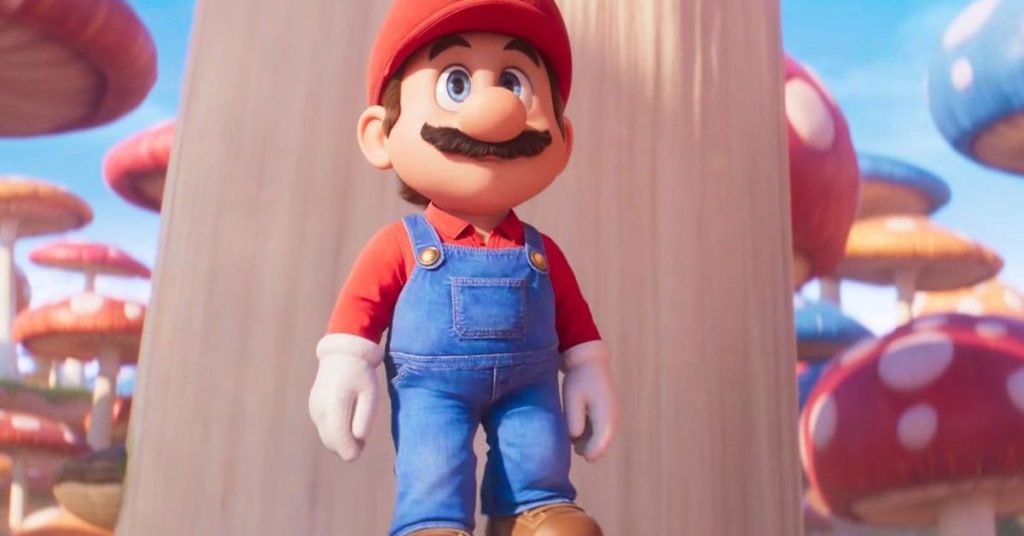Today’s episode is about 2023 in media—from TV to film, from the miracle of Barbenheimer to the superhero drought, from Netflix’s show of strength to Taylor Swift’s invincibility, from the podcast purge to so much more. Our guest is Matt Belloni, the host of Ringer podcast The Town and a writer with Puck.
If you have questions, observations, or ideas for future episodes, email us at PlainEnglish@Spotify.com.
In the following excerpt, Derek talks to Matt Belloni about the state of the movie and TV industry and whether 2023 is an inflection point for Hollywood.
Derek Thompson: Happy holidays. You are a busy man, and my vision for this episode is massively overstuffed. So let’s do this as quick as possible. I want to do a state of the union for TV and film and the poststrike future of Hollywood. I want to talk Netflix and the Streaming Wars. I want to talk Disney and IP franchise burnout. I want to finish on podcasts and predictions. That’s a lot. So let’s start—
Matt Belloni: It is, and I thought we were talking about Ozempic.
Thompson: Yeah, Part 3 of the Ozempic saga. It carries over into the second week. Let’s start on movies. And obviously, we’re talking Hollywood, so, of course, there is always an Ozempic angle that you can take this in. A couple of weeks ago, on The Big Picture, Sean Fennessey mentioned that, for the first time in decades, the three biggest films by worldwide box office this year, which were Barbie, Super Mario Bros., and Oppenheimer, for the first time in decades, the three biggest films in the world are not sequels or reboots. And this happened at the same time that the big Disney franchise plays had a very rough year. Marvel saw its worst opening weekend ever with The Marvels. Indiana Jones and the Dial of Destiny was out of the top 10 entirely. Star Wars is doing some kind of hiatus reboot. I am tempted, I am tempted by a take that says that 2023 might be some kind of inflection point where franchise exhaustion combined with renewed demand for novelty to give us a new, brilliant age of original adult blockbusters. I’m not sure I even believe this take that I am tempted to give.
So I want you to interrogate this take in both directions. Let’s hold the Barbenheimer lessons on ice for just a second. First, Disney. Is the Disney creative machine in as much trouble as my brief history made it sound?
Belloni: I’m going to give you the dreaded yes and no answer. Because it’s in trouble. Marvel needs to fix itself. There is a malaise. The fans feel it. The broader industry can feel it. I talk to people at Marvel, they can feel it. They are actively trying to fix this. And that is problem no. 1. When you noted those three films that are going to top the box office this year, you should have noted that none of those films is a Disney film. … This is a studio that has dominated the box office for the past decade. And for them not to have anything in the top three is alarming for the industry.
So Disney has to fix—the Marvel situation is a creative situation. They overhyped and overproduced for many years. And it worked for many years. Now, it’s not working. And it’s cyclical. These franchises go in and out. Marvel had an incredible run, unprecedented, but it can’t last forever. Nothing can last forever. So they got to figure it out.
Now, the other areas of Disney are a little more complicated. For instance, feature animation. That is a huge question in the industry right now. Do audiences consider original animation to be theatrical? And when I say that, I mean that all of the successful animated films since COVID have been pre-branded, like Super Mario Bros., or have been sequels to established hits, like the Minions movies. We have not had a breakout that was an original animated film. And that is a huge problem because those movies tend to cost $200 million when Disney makes them. And they have justified that expense by the amazing run that Pixar and then, recently, Disney Animation has been on.
Now, Elemental, this year, started horribly and ended up getting up to $495, almost $500 million. So that is not a disaster. They made money on that movie. But it’s also not a breakout hit. It’s not a Moana. It is not a kind of movie that you can sequelize and consumer productize forever. And that is a real problem. They’ve got to figure out how to bring down the cost of these movies if the theatrical market is not there. We don’t know. There’s a movie coming out next week, which is an Illumination film, Migration, and we’ll see how that does. The tracking is not great. But if original animated films can no longer be counted on at the box office, then it’s going to have reverberations throughout the industry, especially for Disney.
This excerpt was edited for clarity. Listen to the rest of the episode here and follow the Plain English feed on Spotify.
Host: Derek Thompson
Guest: Matthew Belloni
Producer: Devon Manze
Subscribe: Spotify
